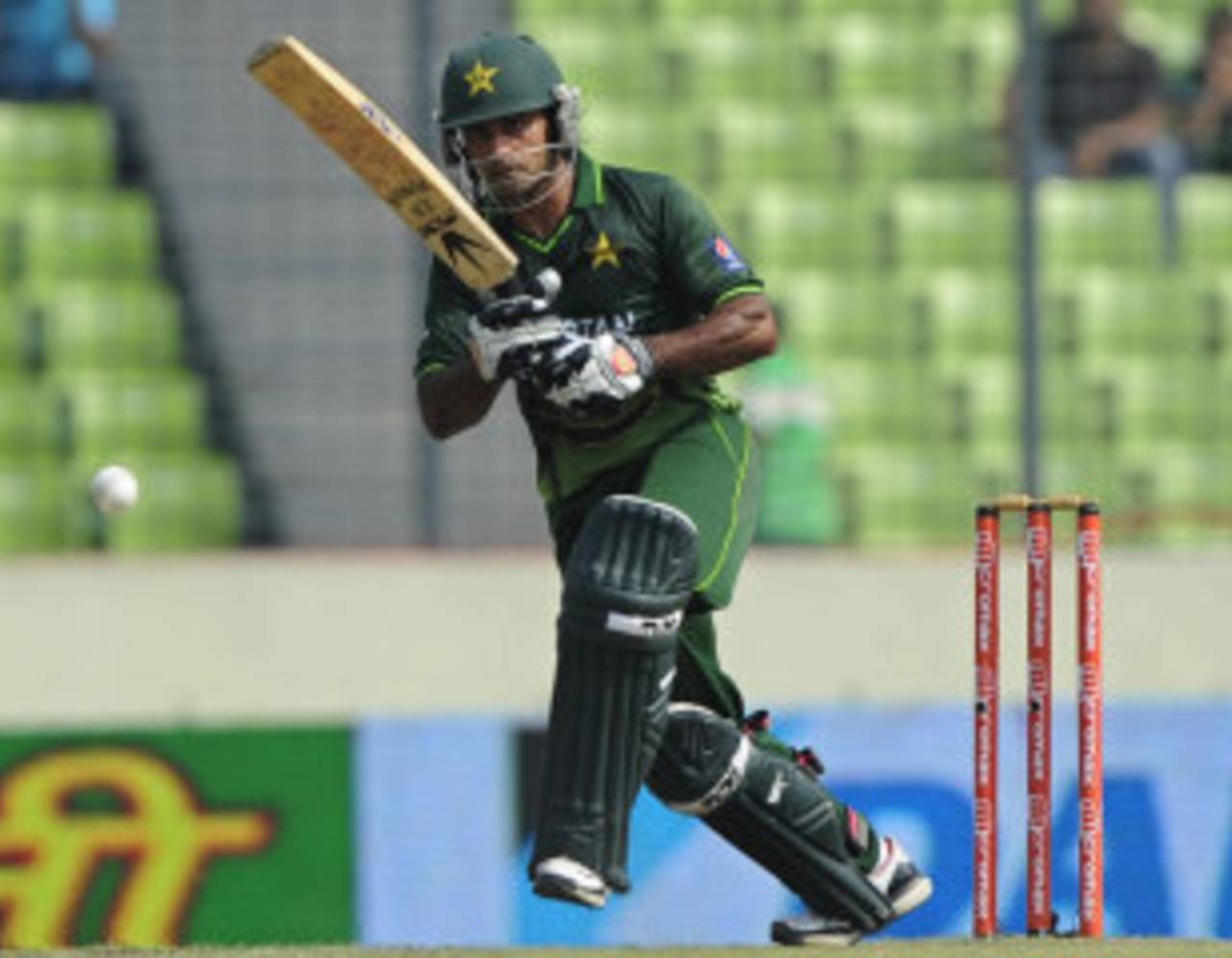Professor takes the T20 chair
Mohammad Hafeez, professor of the Pakistan cricket team, has now also become its Twenty20 captain
Kamran Abbasi
25-Feb-2013

Leadership seems unlikely to be Hafeez's problem - it's the batting that may undo him • AFP
Mohammad Hafeez, professor of the Pakistan cricket team, has now also become its Twenty20 captain. The professor's research interests might initially be restricted to T20 international cricket but impressive early work is a logical path to a more substantial role in one-day internationals. Misbah-ul Haq, who stepped down as the T20 captain, will be equally reluctant to surrender his ODI job but it is hard to see Hafeez's assignment as anything less than an interview for a bigger challenge.
Some Pakistan fans will be disappointed. Younis Khan and Shahid Afridi both still have their supporters although Hafeez has been the obvious successor to Misbah for over a year. Afridi might feel hardest done by. Younis stepped away from T20 internationals voluntarily whilst Afridi lost his captaincy thanks to the erratic decision making of Ijaz Butt, erstwhile chairman of the Pakistan Cricket Board. Afridi was an unlikely captain but he brought a wild spirit to Pakistan's one-day challenges that helped revive his country's cricket when it was on its knees.
Misbah took that leadership and revival role further, firmly establishing himself as one of the most pivotal captains in Pakistan's unsettled history. Misbah's story isn't finished--and neither is Afridi's nor Younis's for that matter--but the England tour of UAE posed questions about Misbah's suitability as a captain, and even as a player, in the limited overs forms of cricket. Those doubts and the wisdom to groom a successor have worked in Hafeez's favour.
When he was first introduced in international cricket, Hafeez instantly gave the impression of a versatile cricketer of good sense, albeit a specialist of bits-and-pieces. A poor man's Shoaib Malik he was at the time; now Malik can only watch from the sidelines, an unfulfilled career ebbing away. Hafeez, meanwhile, has grown in stature, securing his position in Pakistan's one-day side as much as an opening bowler as a batsman -- an extra skill that helps buffer the niggling complaints about his batting.
Indeed, leadership seems unlikely to be Hafeez's problem. It's the batting that may undo him. Misbah has a thorough all-round technique and an iron resolve that have allowed him to flourish as a batsman during his captaincy. Hafeez is less technically able and his temperament, as a batsman, has never been entirely convincing, especially away from the familiar places of Asia. Yet leadership has unpredictable effects on players. Some shrivel, others puff out their chests and achieve beyond their natural ability. Pakistan will be hoping that Hafeez falls into the second category, for Pakistan's genuine captaincy options are few.
In Dav Whatmore, Hafeez has a shrewd and experienced ally, who understands the demands of international cricket as well as the nature of Asian cricketers. These are reasons to be cheerful; a suggestion that Pakistan are looking to build again. A new coach, a new T20 captain, and a clutch of new and recalled players spell the start of a fresh era in Pakistan cricket. To anticipate where it will lead might require the wisdom of more than a mere professor but we can be sure that Misbah, Hafeez, and Whatmore will be resolute in their desire to graduate with honours.
Kamran Abbasi is an editor, writer and broadcaster. He tweets here